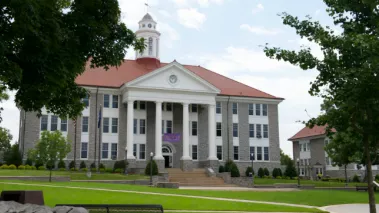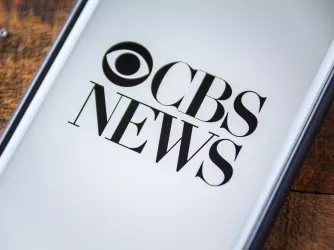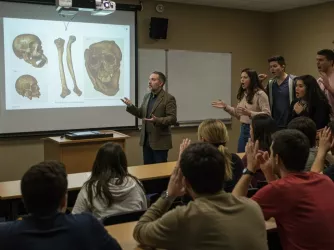Table of Contents
James Madison University reportedly orders alleged sexual assault victim not to go public

FIRE has repeatedly made the point that the current broken state of sexual misconduct and other Title IX procedures on today’s campuses is poorly serving both accusers and the accused. Last week I wrote about a situation that’s unfair to the accused. This week, it’s an accuser’s turn to face injustice. James Madison University, a public university in Virginia, has reportedly told a campus sexual assault accuser that going public with her accusation could violate university rules against trying to influence the outcome of her case. As JMU’s newspaper The Breeze reports:
Caroline Whitlow, a sophomore social work major, says the assault happened June 21, 2017, during a study abroad trip. After returning to Harrisonburg and running into her alleged attacker several times throughout the fall semester, Whitlow reported it to the Office of Student Accountability and Restorative Practices in December 2017. On March 28, a hearing board found the accused, a fellow JMU student, not responsible.
Whitlow is in the process of appealing the original decision of “not responsible” made by an OSARP review board. In an email exchange between Whitlow and Tammy Knott, the senior assistant director of OSARP, Knott warned Whitlow not to disclose information regarding the case to the media.
Knott wrote that revealing details about the proceedings to the press could be considered interfering with the outcome of the case, citing student handbook policy J18-200. While that policy number doesn’t exist, J18-100 states, “No student shall engage in any activity which disrupts, unfairly influences or obstructs the Accountability, Honor Council, or Title IX processes at JMU.”
First of all, JMU, a public university and arm of the state government, is prohibited by the First Amendment from telling a student that he or she may not talk to other people about her allegations of sexual assault at the hands of a fellow student. This includes members of the press. The fact that the accused student was found not responsible for sexual assault does not require the accuser to agree with that verdict, or to refrain from challenging or denouncing the finding or the accused in any lawful way. We wrote about this back in 2013, when a similar situation arose at the University of North Carolina at Chapel Hill. The proper recourse for the accused in such a situation is either to defend himself or herself in the court of public opinion, or file a lawsuit for defamation.
Second, JMU’s contention that her going public with the accusation could potentially interfere with the outcome of the case, which is still on appeal, is just as alarming. It suggests that JMU knows that its Title IX process is so poorly insulated from public pressure that criticism alone (as opposed to new facts or the exposure of bad procedures) may cause the school to reverse its position on whether a sexual assault took place. If that’s true, that’s a huge indictment of the process itself. Avoiding this very problem is why we make sure that juries keep themselves away from the news or any discussions of the case in which they are involved, sometimes going so far as to sequester them away from their homes and families. That’s because if your determination of whether or not a crime occurred is based on what other people want you to decide rather than your best judgment of what actually happened, you are betraying not only the accused but the very idea of justice.
Third, it’s disturbing that the reported email exchange between JMU’s Tammy Knott and the accuser itself contains a fairly serious error, citing a code provision, J18-200, that does not exist. It seems likely that this is simply a typo, and that provision J18-100 is the one that JMU meant to cite. But that’s a heck of a bad place to make a typo, and it potentially serves as another indicator that the Title IX process at JMU is not nearly as careful as it should be. One hopes that this lack of care does not extend to other cases at JMU, where a miscited code provision might cause a student to go into a hearing totally unprepared, believing he or she is being accused of an entirely different offense.
FIRE has long warned that a lack of respect for due process and for students’ constitutional rights is compromising both the integrity of campus disciplinary procedures and people’s trust in their reliability. JMU must rectify these problems, and soon, or face the fact that it bears some of the responsibility for the growing problem of campus injustice.
Recent Articles
FIRE’s award-winning Newsdesk covers the free speech news you need to stay informed.

The FCC's show trial against CBS is a political power play

UPDATE: Another federal appeals court backs academic free speech for public employees

Feds to Columbia: ‘You want $400 million in contracts back? Do this (or else)’
